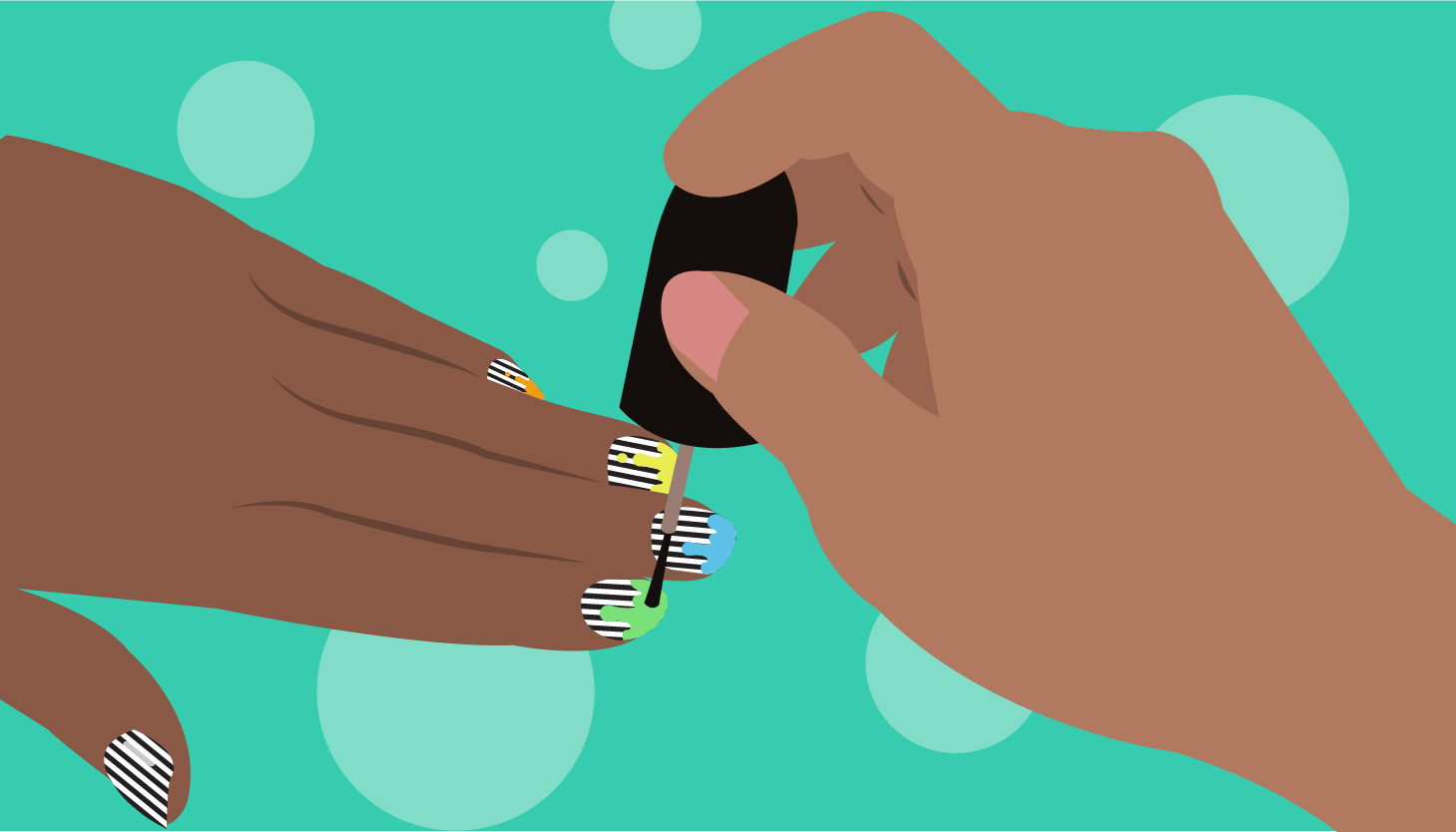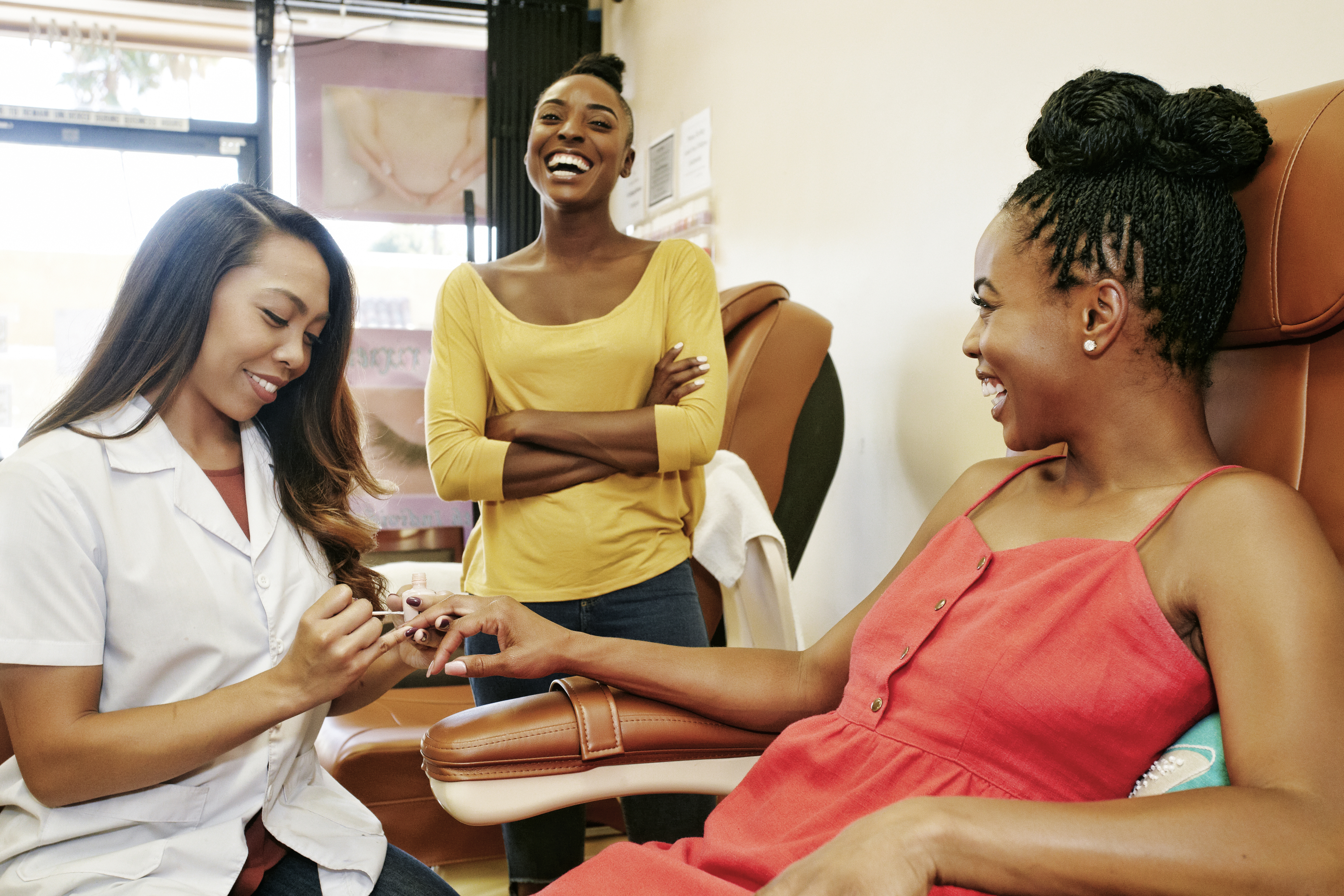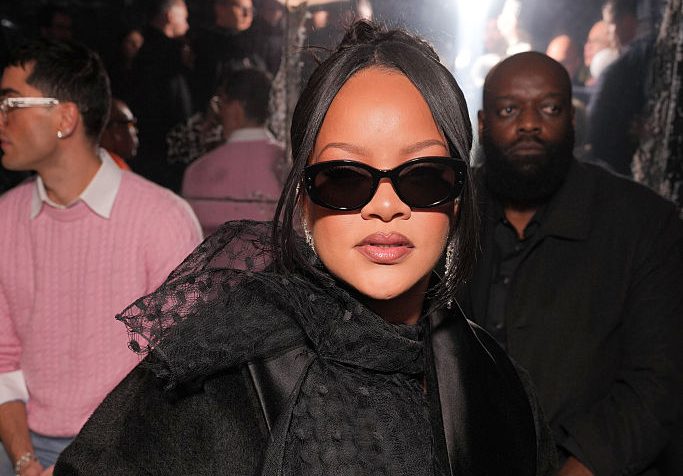Black Nail Techs & Owners Talk Over Saturation Of Asian Nail Salons
Black Nail Techs And Salon Owners Get Real About The Oversaturation Of Asian Salons In Our Communities

Pear Nova founder, Rachel James leans back in her chair and pauses. “You know, I have not been to a salon that has mostly Asians since I was probably…since before I started the line. So probably 6 years ago.” She’s stopped by iONE Digital to show me her new cruelty and 5-free nail colors just in time for Fall. We begin talking about the incident at the Brooklyn nail salon that had social media chatting about mistreatment of Black people by Asian beauty owners (specifically of nail salons) in their community. She added, “I just hate that it had to get to that. We had to see someone suffer for us to be supportive and be uplifting of one another.” The video brought to life a larger problem of respect and treatment of women of color by Asian workers, the video even showing one Asian salon worker attempting to squeeze acetone in one of the black woman’s eyes.

Business owner assisting customer in nail salon
Nails are a popular beauty routine and pick-me-up for women everywhere. Nail trends have been on the rise with fashion week runways sporting looks that become just as popular as the clothes the models are wearing. And it’s no surprise. According to Statista.com, approximately 8.53 billion U.S. dollars were spent on nail salon services in the United States. However, while many of these salons are placed in communities of color, what is missing are black-owned nail salons and black-owned products being used on the consumers that are, well, black. Their demographics portion of the survey revealed that the nail industry is dominated 51% by Vietnamese and Asian communities, 40% Caucasian, and 5% Black (as well as 3% Hispanic and 1% other). James’ matter of factly reveals, “I never really liked the vibe of the Korean nail shops. I mean, of course, sometimes when you are getting a pedicure, everything’s nice. You know sometimes when you go to the hair shop you feel like, ‘Oh, I am home. I can talk to this person?'” She continues without hesitation, “The vibe at the nail shop was never a comforting one.”
And James’ isn’t the only one that feels this way. Many Black women consumers, turned owners have kept the power of the dollar on their mind and the importance of educating Black women on the significance of spending their money within the Black community. Kelli Coleman, owner of The TEN Nail Bar in Detroit states, “As a black female entrepreneur, I constantly remind my peers about the power of our dollar. This couldn’t ring more true in the business of beauty. Black women and men are becoming more visible in the nail industry.”
The visibility has been powered via social media for many technicians and business owners. The profession of nail technician is a second career for many in the industry. NailCenter.Us reported in 2016 that 63% of the people they surveyed had another career prior to beginning in the nail industry. One of these women includes Kia Stewart. She happily says, “I just actually transitioned careerwise from dentistry into nails.” Starting a new career can be hard, specifically in an industry where you are the minority. However, avenues like social media have been helpful to budding entrepreneurs. Stewart reveals, “I have to say I’ve gotten a lot of support through Instagram. A lot of people have reached out to me and support my page. Definitely Rachel from Pear Nova. It was really a supportive community and changed my mind about the social media space. I still believe we have somewhere to go…in real life.” Coleman echos Stewart’s statement, “Social media, Instagram specifically, has become an amazing creative outlet and business tool for licensed nail technicians. As the co-founder of a black-owned nail salon, it’s inspiring and motivating to see black-owned nail businesses thrive in their communities online and in person.”
Taking online behavior offline can be a bit harder. Asian nail salons thrive with their competitive prices. However, cheaper isn’t always better. Stewart, who is a systemic wellness nail technician, educates, “Black women should definitely invest their money in somebody that is health-focused about their nails. Sometimes we skew past the fact that what we put on our body externally effects what’s going on internally with us. Especially with a service like nails that you continuously do all the time.” There have been articles discussing the health concerns of fumes on nail techs; however, nail polishes and products can be equally, if not more, damaging to consumers as well. Stewart adds, “You want to limit your toxicity and things like that. Going to a nail technician that’s wellness base and has an understanding of systemic health is a great thing and definitely using products like Pear Nova that has that same mindset for the consumer is a great thing.”
https://www.instagram.com/p/BnpQloTD7w8/
At many of these nail salons, you are exchanging quality care for a few dollars, but what’s really the price? If you are getting poor service and mediocre products, why still go? Mobile nail technician Ashanti Newman doesn’t have a problem with the disproportionate amount of Asian business owners in the nail salon community, “until it’s disrespectful.” She explains, “I’ve noticed that a lot of places run by Asian people their more of a ‘you need me, I don’t need you’ type of vibe. They’re pretty rude. For people to come into their spaces and spend their money, I should be treated with respect. If I’m spending my money, I want good service.”
…and good service is what you deserve. However, so many consumers have been trained by price vs. quality that they don’t even realize the risks that are hiding behind their latest gel design. Newman stresses the importance of going to trained, black nail technicians and discusses the benefits. “You’re getting people who actually give AF about your nails. And you can talk to them and you can communicate with them and you don’t have to worry about a language barrier. You can ask questions and you can find out how to best take care of your nails on your own.” Nail care goes beyond the design and is all-encompassing with nail health from product, application and treatment. Is your nail salon offering 5-free product or cruelty-free? You should have options. She firmly states, “Whatever people put on your nails is not supposed to harm it. They are supposed to just make your nails look pretty and preserve your nails. It’s not supposed to hurt at all.” How many women can relate to getting their nails done and having pain from applications, cuticles being over clipped, or nails being drilled too much?
Being serviced by a fellow Black woman brings comfort, understanding, and convenience. There are so many options from nail salons, to freelance nail techs, to mobile salons that facilitate getting your nails done by a black woman. Newman reasons, “I think that now that we have Instagram and Facebook and all of these things, just look out into your neighborhood and find out whose black, whose in your neighborhood. Put it out there. Maybe one of your friends know. There are a lot of black girls out here doing nails.” Supporting black-owned businesses are just one way for economic prosperity for people of color. Newman says, “You might spend a little extra money for quality. Just go ahead and do that.”
Danielle James is Head of Fashion and Beauty Partnerships for HelloBeautiful and MadameNoire. She’s the Founder of Model Citizen, a peer-to-peer shopping platform that allows women to shop each others’ closets. You can find her on Instagram and Twitter: @TheIslanDiva.







